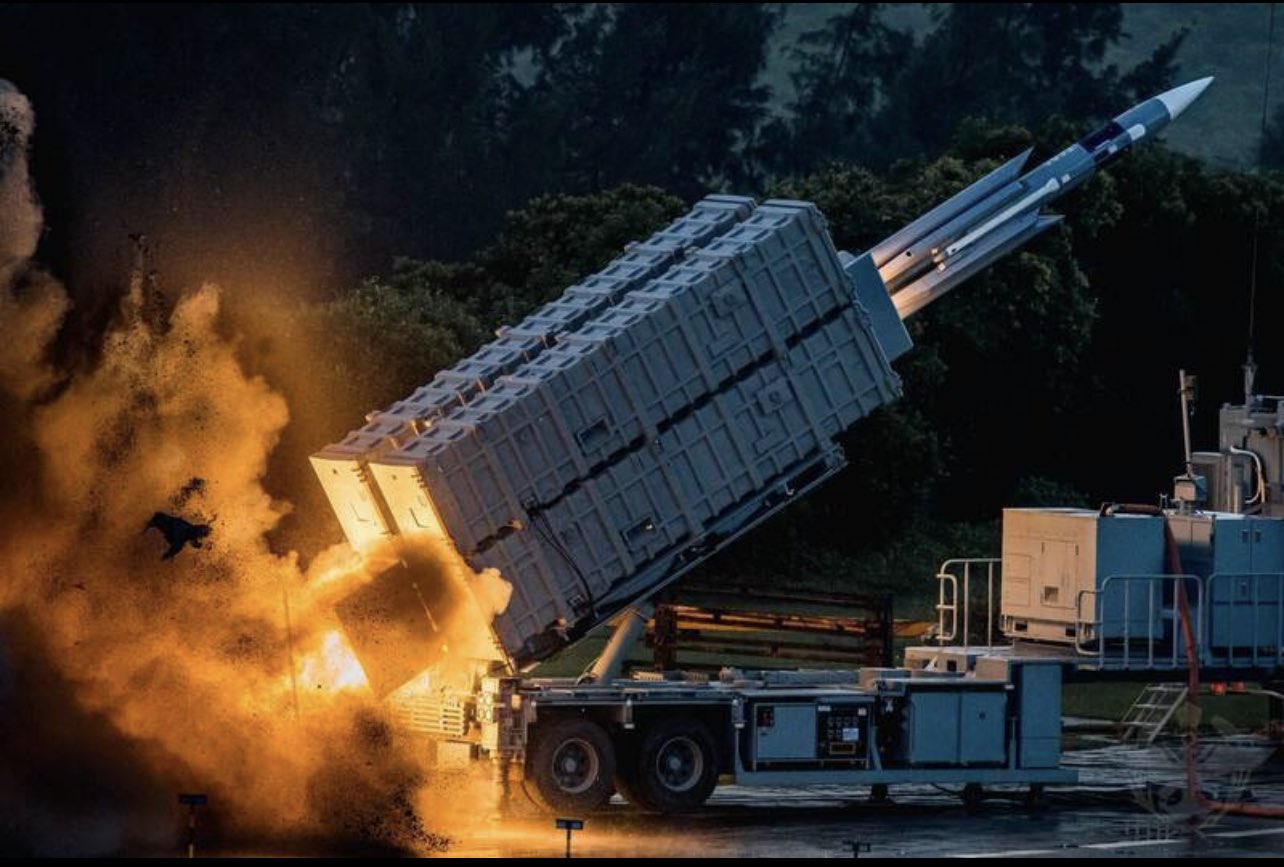In an interesting twist to the excruciating task of arming Ukraine against Russia, Greece has offered to transfer its S-300 surface-to-air missile (SAM) system to Kiev/Kyiv – in exchange for Patriot Advanced Capability-3 (PAC-3) as a replacement.
Ukrainian MiG-29 Pilot Talks About AGM-88 HARM & Shahed-136 UAVs; Explains Why It Is Hard To Counter Iranian Drones
Interestingly, this development comes when the Biden administration is finalizing plans to send a Patriot system to Ukraine after months of Ukrainian demands and consternation in Washington.
Interestingly, the Greeks want to deploy the Patriot missiles on the island of Crete. This is the same island on which a Greek S-300 allegedly “locked” Turkish F-16 fighters on August 23 this year.
Greece needs advanced SAM systems in its long-running tensions with Turkey in the eastern Mediterranean over a series of territorial and maritime disputes.
The S-300PMU1 is an export variant of the Russian-made S-300P, developed between 1985 to 1989 and was first shown at the 1992 Moscow Air Show. It consists of four cylindrical launch canisters with a missile each.
Greece originally wanted to place the S-300 in Cyprus from 1997-1998, but following objections from Turkey, Athens placed them on the Crete islands.
Meanwhile, the Raytheon Technologies-made MIM-104 Patriot is a surface-to-air missile (SAM) platform that can engage aircraft, cruise, and ballistic missiles, loitering munitions, and drones.
A Patriot battery typically consists of six to eight truck-mounted launching systems, each with four launch canisters with a missile. A battery includes a tracking radar, a fire control system, a high-frequency antenna mast, and power generators.

The Greek S-300 For Patriot PAC-3 Offer
Greek Defence Minister Nikos Panagiotopoulos announced the offer at a meeting of the country’s Ministry of Defence (MoD).
“If the United States installs a Patriot system on the island (Crete) and after it is integrated (and) connected to the national air defense system, then the S-300 can be removed. The same procedure applies to any other Russian-made air defense system that they may want to send to Ukraine.”
Moreover, the Greeks are also willing to send their older Tor-M1, OSA-AKM air defense systems, and BMP-1 Infantry Fighting Vehicles (IFV) – all of Russian origin. For the BMP-1, Greece has conditioned them to be replaced with the German-made Marder IFVs.
This is also a direct reversal from Greek Prime Minister Kyriakos Mistosakis’s September 11 refusal, who said military assistance to Ukraine “should not come at the expense of the country’s defense.” Mistosakis was asked if Greece would send its armored vehicles, S-300 platforms, to Ukraine.
Turkey accused Greece of locking its F-16 fighters with the latter’s Russian-origin S-300 radars in an incident on August 23. However, Greece denied it was the S-300 and said the tracking was conducted by four of its own F-16 aircraft.
This was in response to five Turkish F-16s providing an unannounced escort to US B-52 bombers passing through its southwest. The Turkish jet’s escort was without a flight plan, which prompted the Greeks to scramble their F-16s.
Turkey had then said that the hostile “radar lock” came from an S-300 stationed at Crete, which was unbecoming of a North Atlantic Treaty Organization (NATO) “harassing” another NATO nation, according to the military bloc’s rules.
The F-16s were at an altitude of 3,000 meters (10,000 feet) to the west of Greece’s Rhodes Island when the Russian-made S-300’s target-tracking radar locked on to it, an Al Jazeera report said.
Russian Reaction To Patriot Missiles For Ukraine
The Kremlin said on Wednesday that US Patriot missile defense systems would be a legitimate target for Russian strikes against Ukraine, should the United States authorize them to be delivered to support Kyiv/Kiev.
Kremlin spokesman Dmitry Peskov said Patriots would “definitely” be a target for Russia.
Russia’s embassy in Washington said the proposed transfer was provocative and could lead to unpredictable consequences. “Even without providing Patriots, the United States is getting deeper and deeper into the conflict in the post-Soviet republic,” the mission wrote on its Telegram channel.
Interestingly, Russia had promised to target convoys carrying Western weapons to Ukraine as “legitimate targets” earlier in the war but never actually did so.
This indicated it was wary of directly fighting the US and Europe directly, as the latter were reluctant to enter into a war with Russia. Moscow limited itself to just striking the Western weapons on the battlefield.
Will Patriot Missiles Help Ukraine?
The immediate effect of Ukraine receiving the Patriots could be varied but would most likely have the same end result – the impossibility of Ukraine being able to take back 20% of its territory from Russia.
Russian cruise missiles might be intercepted, and the long-range strikes might even be halted for a while. The Russian air force might even lose a few fighters like the Su-35 or the MiG-31BM, depending on where Ukraine places the PAC-3 Patriot missiles. However, the Patriots or additional S-300s may not be able to alter the outcome of the war.
Ukraine would have to choose between using the missiles to protect either civilian energy infrastructure that has left half its cities in the dark or the frontlines in the east in Donbas, where Russia continues to make slow incremental gains. Either decision would be a loss, and Kiev/Kyiv remains checkmated on this front.
Tom Karako, a missile defense expert with the Center for Strategic and International Studies (CSIS), called it more of a “political gesture of support.”
“What we are sending is (just) one battery. It is not going to protect Ukrainian cities. It’s going to protect one spot somewhere. The defended area of what we’re sending is going to be rather limited,” Karako was quoted in an article on Breaking Defense. Therefore, imagining the Patriots as a panacea for Ukraine’s battlefield woes is simply impractical and foolhardy.
- The author can be reached at satamp@gmail.com
- Follow EurAsian Times on Google News